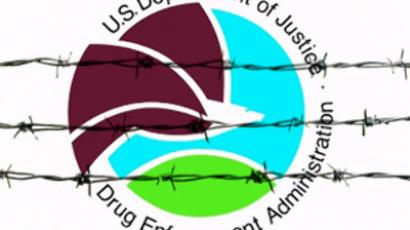Death row case in Texas stirs US death penalty debate
Hank Skinner is a death row inmate in Texas who says he is innocent, and he can prove it. But his battle to prove his innocence has been challenging and has reopened the death penalty debate in America.
Skinner has been denied access to the evidence that he says will prove his innocents and is also faced with the challenge of proving his first trial was unfair.
This case points to an intrinsic problem with the death penalty in the United States, argued anti-death penalty activist Rachel Moshman.
“There have been over 130 people exonerated from death row after receiving the sentence they have been found innocent and been released. You can only question how many people have actually been killed during that time. It’s a huge issue,” she said.
Moshman added that since 1989 254 people have been exonerated due to DNA evidence alone. Individuals should have the right to bring that evidence forward to prove their innocence, she argued.
Conservative radio host Tony Katz agreed that individuals should have a right to access DNA evidence to prove their case. However, he argued that the death penalty as a whole still remains a viable option, even though innocent people may be killed.
“The numbers that you may think in terms of, oh my gosh, look how many people are slipping through the cracks, are minute at best and I’m already saying to you that if there is away for DNA evidence to prove the innocence of someone we should be all about finding it,” said Katz.
Currently, not every state in the US allows for post-conviction DNA evidence, which makes it problematic for one to prove their innocence in some cases.
“How many people have we killed who are innocent?” asked Moshman.
Some have previously referred to a ‘cowboy like mentality’ in Texas when describing the state’s use of the death penalty. Katz rejects this perspective.
“I don’t pay too much attention to experts in Paris. The last time they didn’t have a cowboy mentality they were too busy surrendering to the Germans” he said.
Katz added, “65 percent of Americans, according to a Gallup Poll from 2007 I believe, are in favor of the death penalty in certain cases, only 31 percent oppose, four percent don’t know how they feel about it.”
The United States is a different culture, argued Katz.
“We believe that if you murder someone in cold blood your life can be taken in regard to that murder,” he said.
Moshman argued that unlike Texas, the rest of America is not so blood thirsty and that America is moving closer to abolishing death penalty.
Katz maintained that the issue is a states’ rights issue and that each US state has the right to decide whether or not they wish to utilize capital punishment and that the death penalty is not barbaric; it is supported by the American people democratically.
Moshman pointed out that the American people once supported racism, but that did not make it right.













